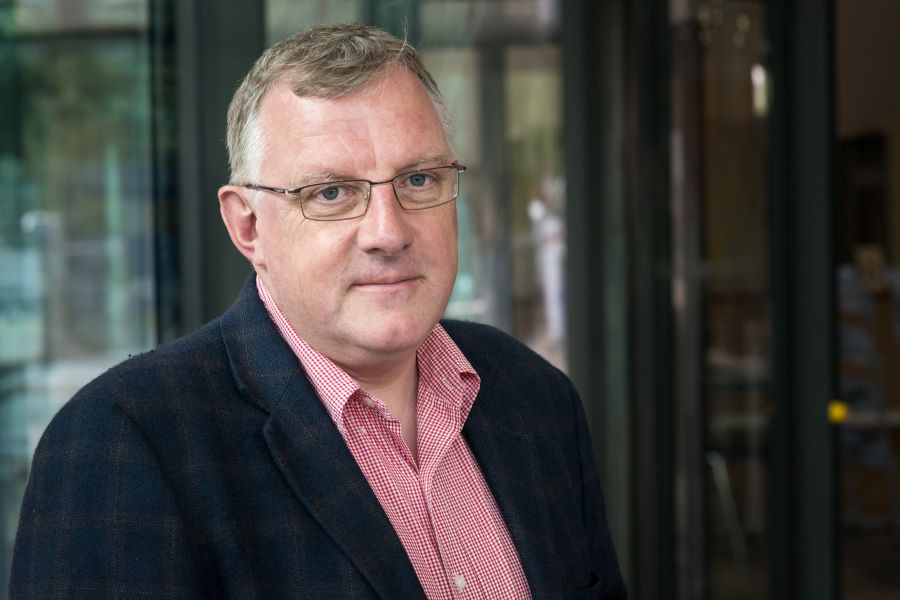Between minimum compromise and new strategic foundations - Prof Dr Reimund Schwarze on the climate conference
Belém was chosen as the symbolic venue for the 30th Conference of the Parties (COP30) to the UN Framework Convention on Climate Change in Brazil. However, expectations were not met: The climate summit was unable to agree on phasing out fossil fuels, but there was also important progress. Prof Dr Reimund Schwarze, climate economist at the Viadrina, draws this conclusion.
The results of the 30th UN Climate Change Conference (COP30) are mixed. The final declaration falls short of expectations: there is no binding roadmap for phasing out coal, oil and gas, which many see as a missed opportunity. At the same time, there are rays of hope: funding for adaptation measures has been tripled by 2035 - a particularly important step for the world's poorest developing countries (LDCs) such as Sudan. Host Brazil sent a strong symbolic signal in the Amazon region. President Lula da Silva made a name for himself as an advocate for the southern countries and introduced initiatives such as the Tropical Forest Forever Facility (TFFF). However, the new national climate plans (NDCs) fall well short of the scientifically necessary targets. The conference attempted to bridge this ambition gap through voluntary roadmaps and the so-called "Mutirão" pact ("Standing together in times of need" pact), but no binding commitments were made.

Sebastian Wiedling
Progress with GGA, TFFF and TAFF
In the Global Goal on Adaptation (GGA), indicators for measuring progress on adaptation were adopted for the first time - a methodological advance. However, the original number of over 100 indicators was reduced to 59, which was not agreed with countries of the Global South in particular, such as Bolivia and the African Group. There are also no new funding commitments, meaning that the implementation of the measures remains questionable.
The Tropical Forest Forever Facility (TFFF) was officially launched and initially endowed with 5.5 billion US dollars. The fund pursues an innovative financial model: income from financial investments is to be used for forest conservation. Recipient countries are given a stronger incentive at national level to implement measures for the conservation or sustainable use of tropical forests as part of an improved forestry policy. More about the TFFF in the podcast with my UFZ colleague Dr Friedrich Bohn.
The Transition Away from Fossil Fuels (TAFF) initiative was unable to push through a binding roadmap; the planned roadmap was removed from the final text. Nevertheless, support increased: more than 80 countries committed to TAFF, and Brazil attempted to at least provide voluntary guidance with the "Belém Declaration". The governments of Colombia and the Netherlands announced that they would jointly organise the first international conference on the just transition away from fossil fuels. The conference will take place from 28 to 29 April 2026 in Santa Marta, Colombia. Germany will participate.
Other relevant points of the COP30 include greater respect for indigenous rights and the record participation of indigenous delegates, as well as the creation of an international marsh conservation and rewetting programme led by Germany.
Hidden partial successes
Despite the lack of a breakthrough, important institutional foundations have been laid: The agreement on indicators for the GGA creates a global measurement basis for adaptation for the first time - a technically, but also economically decisive step. The TFFF could secure new financial flows for forest protection and sustainable forest use in the long term, even if the World Bank's high-risk investment fund model continues to be criticised. The broad support for TAFF indicates the emergency of a new alliance for the fossil fuel phase-out, even if it is not yet binding.
Conclusion
The COP30 does not mark a major breakthrough, but it does lay strategic foundations - particularly in terms of adaptation, nature conservation and the mobilisation of new alliances against fossil fuels. The real test will be whether these approaches can be translated into binding policies and sufficient financing in the coming years.
Prof. Dr Reimund Schwarze is a climate economist at the Helmholtz Centre for Environmental Research (UFZ) in Leipzig and professor at the European University Viadrina Frankfurt (Oder). For 20 years, he has been analysing international climate negotiations from a political-economic perspective and developing models to improve global climate policy.
Translated by DeepL and edited
Back to the news portal
Share article: